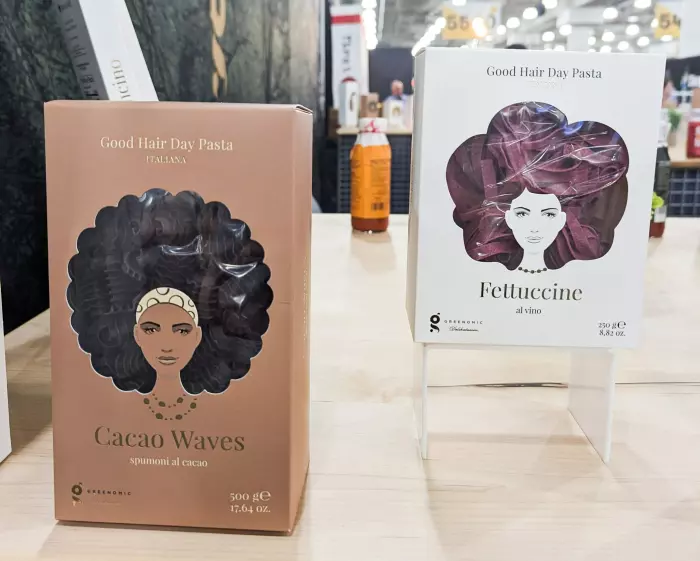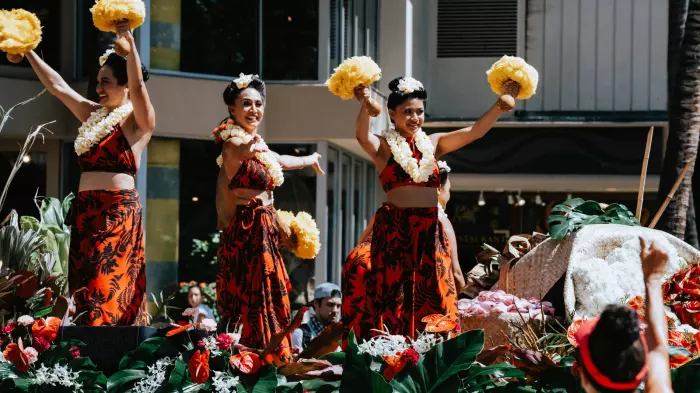By Matthew Kronsberg
The only way to fully appreciate the Summer Fancy Food Show, the massive gourmet trade expo held annually at the Jacob Javits Center in New York, is to put on your walking shoes and shelve pre-existing opinions you might have about cinnamon churro-flavoured pork rinds.
With more than 2,000 vendors set up over 300,000 square feet on two levels, it’s the rare occasion where you can simultaneously triple both your daily step count and caloric intake.
The show, which just completed its 67th year, is hosted by the Specialty Food Association – specialty food being a broad and somewhat vague category of premium-priced items including not just the niche, but also fancy ice creams and confections, and gourmet goods such as artisanal olive oils, cheeses, and charcuterie, and upscale versions of dips and salsas.
Pet snacks make appearances, too.
In 2022, specialty food sales hit US$194 billion (NZ$316b), a 9.3% increase from the year before, with sales projected to hit US$207b this year.
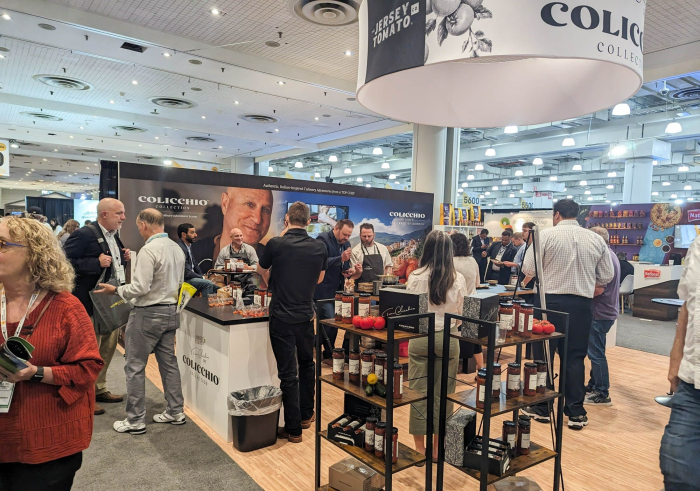
Browsing endless aisles at the show. (Image: Matthew Kronsberg/Bloomberg)
Known as a cradle of food trends, the Summer Fancy Food show draws not just buyers for small gourmet shops and big chains like Whole Foods Market, but also people like Melanie Zanoza Bartelme, associate director for food and drink at marketing intelligence firm Mintel – she is one of the Specialty Food Association’s trendspotters.
Among the movements she sees this year: A lot of boba aka bubble tea products.
Also, a slow shift away from keto and other diets, she says, and the rise of exotic citrus and blueberries. The classic berries were interesting, she observed, while strolling through the stands because they aren’t new.
“All of a sudden blueberries are kind of special again, and that’s really interesting to me.” She also sees that the White Lotus effect has extended to food, amplifying a nascent consumer interest in all things Sicilian.
That’s good news for Italy, whose food and beverage exports to the US amounted to US$7.3b in 2022; that accounted for 11% of Italy’s total exports. They were the largest among the trade groups from 31 countries at the fair who sponsored pavilions highlighting their own foods.
A new pavilion this year featured 10 small Bipoc-owned brands, including Maazah from Minneapolis, who introduced lentil-based dal dips as an intriguing hummus alternative.
Many areas were devoted to categories like deli foods, beverages and upcycled products, such as Renewal Mills’ Oat Chocolate Chip Cookie Mix made with oat milk flour.

Antarctic krill meat debuted at this year’s show. (Image: Matthew Kronsberg/Bloomberg)
Mostly though, chaos reigns, with the mundane and the insane sitting cheek by jowl (the jowl having been butchered from a heritage breed hog and cured into bacon-like guanciale.) This year featured sprayable duck fat, Austrian-grown wasabi – in powder, paste and gin forms – shrimplike Antarctic krill meat, reportedly known as “the commoner’s caviar” in the former Soviet Union, and from Dave’s Gourmet, an AI-created hot sauce called Chil-AI whose recipe was concocted by a chatbot.
“Whale Sperm” tortilla chips were among the show’s more eye-catching offerings.
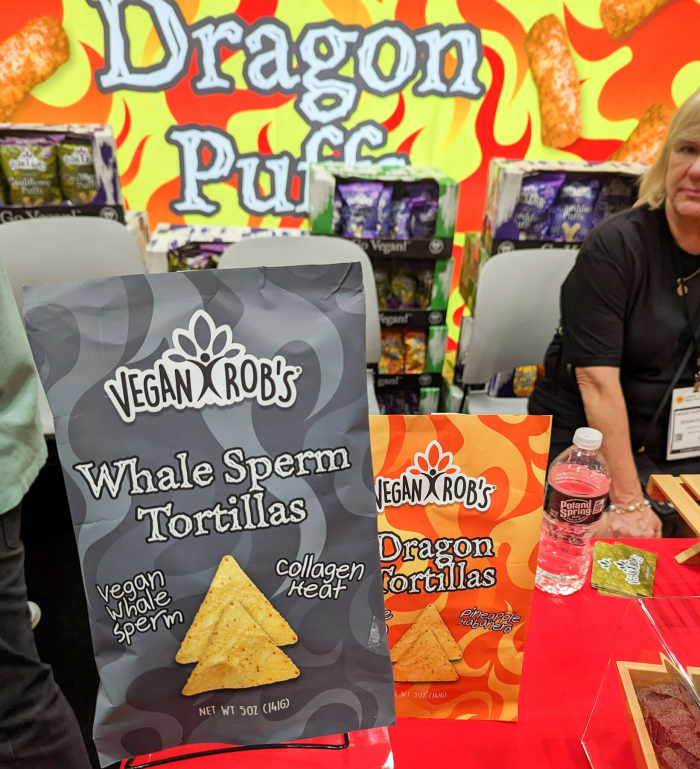
Remember, they’re vegan. (Image: Matthew Kronsberg/Bloomberg)
Whale sperm? Don’t laugh. Actually yes, please laugh.
They are the latest creation of Rob Ehrlich, one of America’s great snack savants. He invented Pirate’s Booty (which Hershey Co, eventually bought for US$420 million) and later presaged the great cauliflower boom with the 2009 release of Vegan Rob’s brand Cauliflower Puffs.
With the diminishment of diets such as keto, he says, “People are going to become more natural and obviously, more decadent. They want to have stuff to indulge themselves. Nothing can be better than whale sperm.”
The name is a little bit of a non-sequitur – a provocation bound to catch the eyes of consumers, buyers and journalists (guilty).
The chips themselves are decidedly noncontroversial, flavoured with a seasoning imbued with vegan collagen which is among other things beneficial to skin and joints, fitting them neatly into the category of “functional” foods.
The non-whale-harming chips will begin to appear in stores this August.
Downstairs at Sfoglini pasta’s booth, “forkability” was another sounds-worse-than-it-is subject of discussion. It was led by Dan Pashman, host of the Sporkful podcast, and creator of cascatelli, a pasta shape designed to both hold on to sauce and stay on your fork. (It ranked as one of Time Magazine’s 100 Best Inventions in 2021.)
This year, Sfoglini is pushing two new shapes: quattrotini and vesuvio.
“A couple years ago, when we were first launching this, the idea of a US$5 box of pasta felt outlandish to some people,” says Pashman. “That’s not happening anymore.”
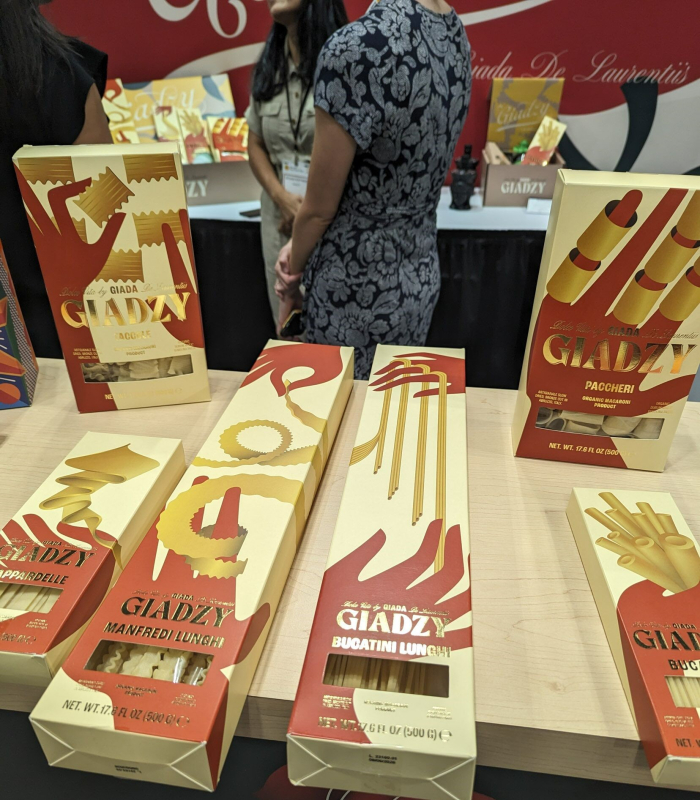
There's no shortage of pasta options, including a new line from Giada De Laurentis. (Image: Matthew Kronsberg/Bloomberg)
Nearby, the premium pasta trend continued. Boldly graphic boxes of Giadzy pasta from the show’s keynote speaker, Giada De Laurentiis, will sell for US$10.50 each when they launch on July 23.
The stylishly conceptual cutout packaging of Greenomic Delikatessen’s Good Hair Day line of pastas fetch between US$8 and $17 in Europe, and will likely be priced similarly here.
For saucing supplies, restaurateur and Top Chef judge Tom Colicchio was behind the stove in his booth serving up pastas made with his Colicchio Collection line of tomato sauces, being launched at the show.
René Bollier, the third-generation owner of Andre’s Confiserie Suisse, a small chocolate producer from Kansas City, Missouri, brought more than 300 pounds of assorted chocolates to dole out from his small stand.
“There’s a lot of value in participating in this show. When we first started doing this specialty to show to date, our chocolate online sales have increased by over 500%.”
And then there are companies that have booths because they feel they can’t afford not to.
Alexis Heimlich, national sales manager at sausage specialist Olympia Provisions in Portland, Oregon, says, “You’re just kind of hoping for that big fish to stop by.”
A few years ago, their big fish was a buyer from Whole Foods where their products do good business. Some of it is also just playing defense.
“If we weren't here, what would be at risk with all of our competitors here?” Heimlich asks rhetorically.

Whoopi Goldberg, right, tasting her way through the Fancy Food Show. (Image: Matthew Kronsberg/Bloomberg)
It’s not all hustle, however. Urbani Truffles, for instance, created a spacious lounge with wood floors, white leather sofas and a bartender preparing Truffle Negroni Sbagliato cocktails made with their new truffle vanilla and hibiscus syrups.
The booth shifted into VIP mode with the arrival of Whoopi Goldberg, who had come to the show looking to build relationships with producers for Villa Solanzana, her sometime home (which she rents out when she’s not using it) on its own peninsula on the island of Sardinia.
But the temptations of the Fancy Food Show can take their toll, admits Goldberg, giving voice to another experience familiar to those who attended. “I’m cheesed out,” she said. “I’ve eaten every piece of cheese I’ve seen.”
For more articles like this, please visit us at bloomberg.com.
© 2023 Bloomberg LP.


